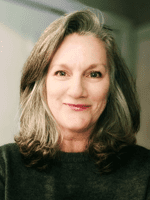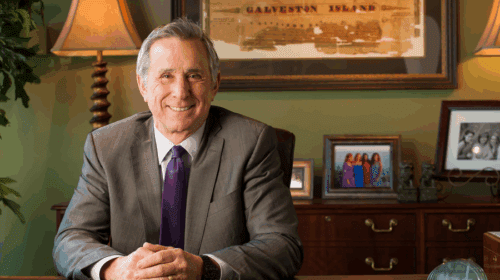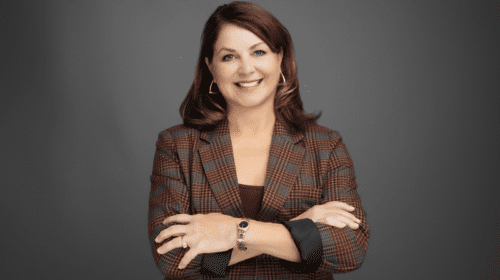“I think back now and I must have been out of my mind, but I thought, ‘If the guys can do it, I can do it. I’m not going to let being a woman stop me.’” Lori Davis, president of Rig-Chem, LLC, is a big believer in the importance of life experience. In this instance, she’s referring to the business trip she made alone to Venezuela in 1999, shortly after Hugo Chávez became the country’s president.
“I didn’t speak Spanish. The military was everywhere with machine guns.” The business contact who met her at the airport, and whose personnel she was there to train, told her to lock the door of her hotel room, put a chair against the door, and not open it for anyone until he came back to pick her up the next morning.
“That’s experience. I could not have learned that in the classroom.”
 The Key to Independence
The Key to Independence
That may be an understatement, but experience has always been Davis’ teacher. As a young, single mother to a small child, there was no time to pursue a formal education, so she learned early on to take advantage of experiences when they came her way.
Not wanting to be dependent on her parents – “that was very important to me” – and as the sole support for her young son, she got a job and started her working life at a family-owned car dealership where she was treated like part of the family.
Living in Louisiana, where oil and gas operations are one of the biggest drivers of the state’s economy, Davis’ father, not surprisingly, worked in the industry in sales for Dowell, the downhole completion side of Schlumberger. Houma is a small town and people in the oil and gas industry in Louisiana are a tight-knit community, so Davis’ father naturally introduced her to people he knew. It was through those connections that Davis was able to get a job with a gas lift company making three times what she had been making working at the car dealership. Despite enjoying her work and “loving” the people at the dealership, she seized the opportunity.
“It was an unbelievable amount of money for me back in those days,” Davis says, “[given] the fact that I only had a high school education. But [it meant] I could take care of myself and my son and I didn’t have to depend on anyone.”
Success in a Downturn
In the early ‘80s, the industry was in one of its down cycles and, although she started in administration, the company eventually agreed to let Davis go into sales on a commission basis – in addition to her admin duties. “I think they thought they would get a better deal and they wouldn’t have to pay me as much as the guys that were working on salary and had expense accounts.”
Because she was just learning the business, Davis was inquisitive and curious – qualities some of the more seasoned male sales reps may have lost after years in the industry – and found customers were receptive to her questions and willing to explain things to her.
“In hindsight, they probably were more eager to help me than maybe they would have been to [help] some guy. I took advantage of the opportunity to learn and it got to the point where I was making more money than the guys because I was working on commission.”
When the company realized having Davis work on commission hadn’t, in fact, saved it money, she explains how she helped them put it into perspective. “I said, ‘I’m making more money because you’re making more money. Maybe you need to rethink your pay structure for these guys. I’m bringing in more business and I’m spending and costing [the company] less money,’” pointing out that she kept entertaining and expenses to a minimum (“I’d make breakfast runs and bring donuts!”) because she went home after work to take care of her young son.
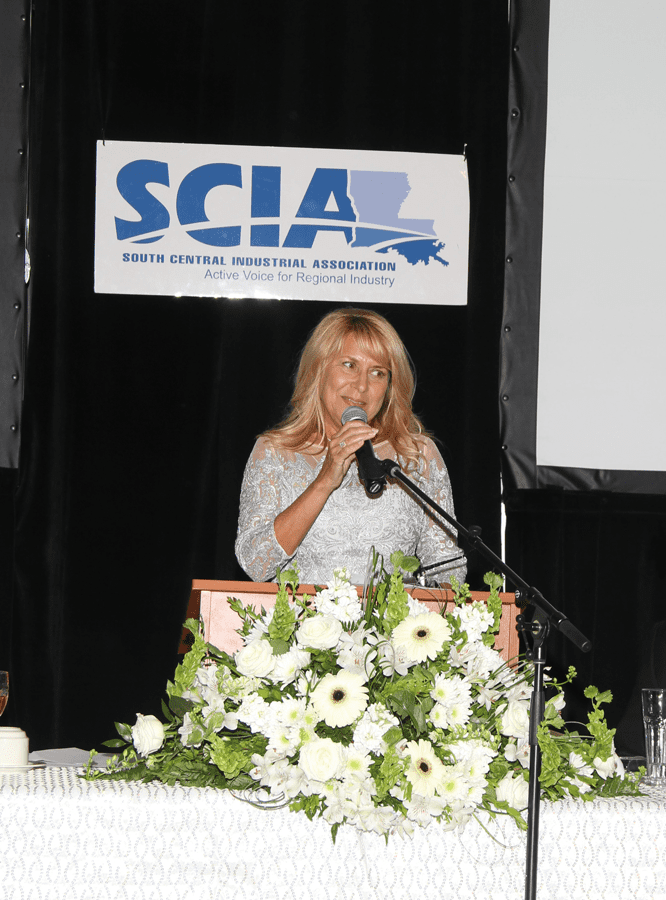
Father-Daughter Team
In a cyclical industry like oil and gas, a lot of people can recall the year they got laid off. Davis remembers the year her dad got laid off.
“Things were really bad and, in 1983, when Schlumberger let everyone go that didn’t have a college education, my dad lost his job. He had been there for over 20 years. He got a pink slip and basically had to start over.” She recalls it being a very hard time for the family, especially with her younger sister enrolled in college.
Fortunately, with more than two decades of experience in the industry, people immediately began calling her father, Anthony “Tutty” Malbrough, with offers of work, including a business owner who had a company he really didn’t have time to focus on. He offered to make Davis’ father a partner if he would run the business. “So, my dad took his severance and he invested it in this company, which was Rig-Chem. That was a big decision – and risk – for my parents.”
Seeing how committed Davis was to her job, but also how difficult things were for her – she was still doing admin work in addition to sales, but not being paid what the men were – Malbrough offered his daughter a role with the company. With a promise to match her commission, and the added incentive of a company car, he said, “Let’s see what we can do to grow this business.”
In the beginning, they worked out of Davis’ parents’ house, and had a small warehouse and one employee. Building on the relationships she had formed while working at the previous company, and her father’s industry contacts, they started developing the business and, eventually, her father bought out his two partners.
Because it was such a difficult time in the industry, Davis looked for opportunities to extend the company’s reach and formed a manufacturing company, which she owns to this day, called Pure Blend, while her parents focused on distribution, sales and marketing.
The father-daughter team worked together until 2002 when Davis and her sister, Penny Molina, bought the company from their parents and a sibling. Just as Davis worked alongside her father, the family tradition continues with her son and daughter-in-law, Corey and Lauren Polk, now working with Davis on business development, with Corey also assisting with safety protocols.
The Decision Maker
“My parents created this business and allowed me to be a part of it. My sisters and I purchased the company; it was not an inheritance. A family business is so different and the dynamic is different. If you can remain a family – still talk during the holidays and remain civil – and still be in business, that’s the journey. We’ve had prayer circles before going into family meetings!” Davis says in all seriousness.
Running a privately owned family business is unique in many ways. “When we have to make a decision, it’s our decision – not a board decision, not stockholders’ decisions. It’s not anything other than the company personnel. We talk about what needs to be done and we make it happen because that’s [the reality] when you own a small business.”
Having served on government boards and committees, Davis says she is always amazed at how differently the private sector works and operates, as opposed to the government, “Because I just see so much that could be done better. Red tape, in my opinion, is what hinders productivity.”
In the past, when she has been encouraged to run for local boards or committees, she has declined. “I have no interest in any of that because they don’t happen fast enough for me; I like to see results,” Davis says, a comment which gives insight into her success, not just as a business owner, but as a woman in this industry.
She acknowledges there are some decisions that require more thought, depending on their importance and the desired outcome, but says, “I think sometimes if we have too much time to ponder something, the decisions may not be the best because time slips away and the opportunity may be gone,” pointing out that puts a small company, like Rig-Chem, which is up against the major players, at a disadvantage.
“You have to be very flexible and nimble and be able to react quickly because that’s what the expectation is. When you’re working with some of the projects that we work on today, and you’re working in deep water, where we primarily do our businesses, you’re talking about millions and millions of dollars. You don’t have the luxury of vacillating over a decision. You have to feel confident when you make a decision that is the best, not only for your company, but also for your client,” Davis says decisively. Even after being in business for over 30 years, “We still are the small company that has to continually prove ourselves.”
Industry Spokesperson
Davis, who says her late mother, Barbara, was a strong personality and pushed her to be as strong as she is, proved the strength of her character when she acted not only on behalf of her own company, but the industry, in testifying before Congress during the 2010 moratorium on oil and gas drilling enacted by the Obama administration in response to the Deepwater Horizon tragedy.
In part, her statement read:
We are now facing the worst year in the company’s history, with six-figure losses and the reality that we can only hold on until December without having to take drastic measures, such as layoffs and pay cuts. This is hard to believe, but this is what the moratorium has done to Rig-Chem, an American dream.
The only people that will profit from this tragedy will be big business. They are the only ones that can survive during this type of crisis. They have huge resources, established international divisions, bank support, government connections, and deep pockets with no real loyalty to employees, only to stockholders. Once this is all done and the moratorium lifted, they will emerge that much better, and they now have reduced competition due to this arrest in our industry forcing small business closures and access to our best employees.
Small business is usually quick to react to change. That is why we have a niche in most markets. Small business can make things happen because we are the decision makers. We keep markets competitive. We employ and train talent that allow them to focus on their job, not corporate culture.
Unfortunately, small businesses, the moms and pops of the industry, will not survive this moratorium if it is not lifted soon.
In October 2010, the moratorium was lifted seven weeks ahead of schedule, with the Administration saying the new rules and regulations put into place lessened the risk of another catastrophic spill.
During that time, Davis had become an activist, convinced that the oil and gas industry has done a poor job of educating the public on the vital role it plays in nearly every aspect of our daily lives. As a result, she was the first woman chosen to lead the South Central Industrial Association (SCIA) and, two years later, received the President’s Award from the organization in recognition of her leadership skills.
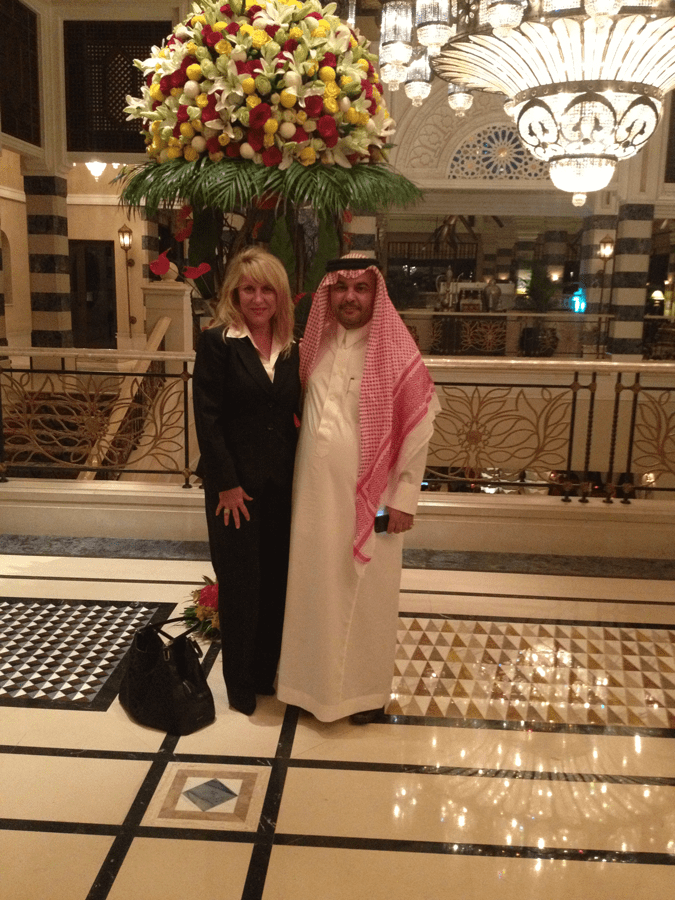
People Are the Answer
Davis says the one thing she’s learned through her life experiences is: “People need people; no one does anything alone. The people in my life have been important to the success of where I am and who I am.”
In addition to always giving her parents credit for helping her get to where she is today, Davis acknowledges another prominent woman in the Louisiana oil and gas industry, Bonnie Maillet, the now-retired founder of Boysenblue Celtec International, Inc., who told her life story in the book, Quest of the Derrickman’s Daughter (Arcadia House Publishing; April 2012).
Describing Maillet as a wonderful mentor and friend, Davis says, “I have a tremendous amount of respect for her because she really did things in the earlier days when there were very few women [in this industry]. She opened doors and exposed me to opportunities that I otherwise probably would have not experienced.”
It’s Davis’ faith in people helping each other that underlies her belief that all facets of the energy industry will come together to solve the challenges the world is now facing.
“We’re very conscious of creating a pathway for energy transfer. For this transition to take place, it’s going to have to happen with people cooperating and working collectively to find an answer. We all want to succeed and we all want this country to be number one.” As someone who has always valued personal independence and considers it key to her success, Davis says, “Energy independence is going to be the driver for us into the future.”
Lori Davis’ Top 12
-
Birthplace: Munich, Germany. My dad was in the military. I was only there for a year, but my dad would take me to the Hofbräuhaus (which bills itself as “The World’s Most Famous Tavern”) while he drank beer.
-
On my music playlist: I love the ‘70s, so I listen to the Allman Brothers, Jefferson Starship, and other bands from that era.
-
Favorite sports team: If you live in Louisiana, you don’t have any choice – LSU and the Saints. Also, watching my grandson, Caleb Polk, play college baseball in Mississippi!
-
Hidden talent: I love to cook; it’s one of my passions. Gumbo is one of those Southern things and mine is a little different because I don’t use a roux. My grandmother always made it that way and it’s called “dishwater gumbo” because it’s light-colored.
-
Book I’m reading now: Magazines, magazines, magazines. You can pick them up and skip around – they give you a little bit of everything.
-
Favorite TV show (or movie): We binge-watch a lot on Netflix. I also watch cooking shows all the time! Anything about cooking and travel. We love the show, The Kitchen, and we also watch Recipe.TV.
-
Best way to relax: We have a condo in Gulf Shores, Alabama. The best way for me to relax is to be at the beach.
-
Biggest inspiration: My husband, Jason, is my biggest inspiration and also my biggest cheerleader. Everybody needs someone like that in their life.
-
Favorite vacation destination: Anywhere near water. We love to travel.
-
Personal motto: “There’s never a dumb question.” I believe that.
-
Best investment I ever made: In 2008, my husband, Jason, and I bought this 20,000 square foot building in downtown Houma – Main Street America – that’s on the National Register of Historic Places. It’s a mixed-use building (residential and commercial). Renovating it is what I do for fun. (We were on the beach in Mexico when we got the call that our bid had been accepted.)
-
If I hadn’t gone into the oil and gas industry, I would have . . . been a florist. I love fresh flowers and making arrangements.
Rebecca Ponton has been a journalist for 30+ years and is also a petroleum landman. She is the author of Breaking the GAS Ceiling: Women in the Offshore Oil and Gas Industry (Modern History Press; May 2019). She is also the publisher of Books & Recovery.
Oil and gas operations are commonly found in remote locations far from company headquarters. Now, it's possible to monitor pump operations, collate and analyze seismic data, and track employees around the world from almost anywhere. Whether employees are in the office or in the field, the internet and related applications enable a greater multidirectional flow of information – and control – than ever before.



